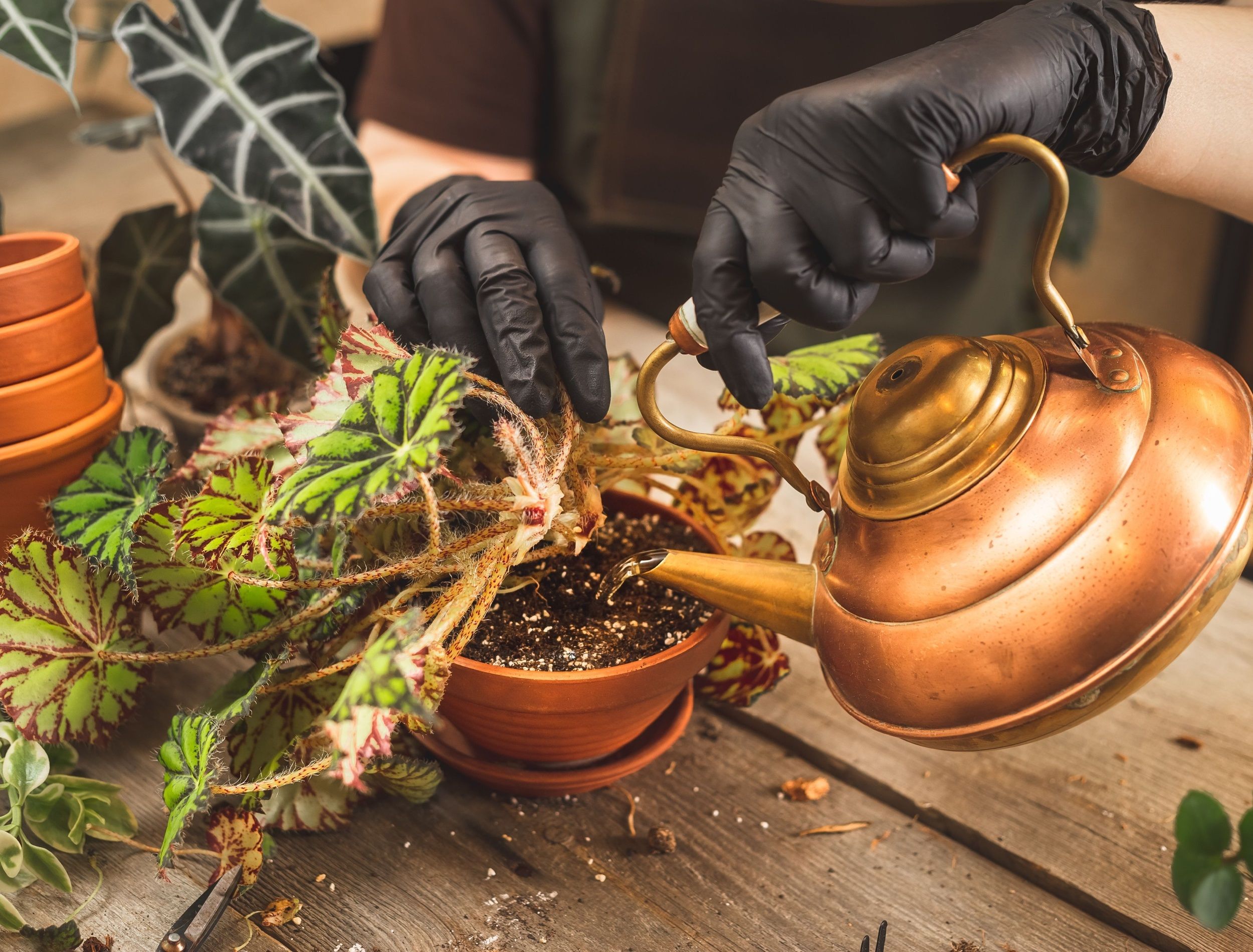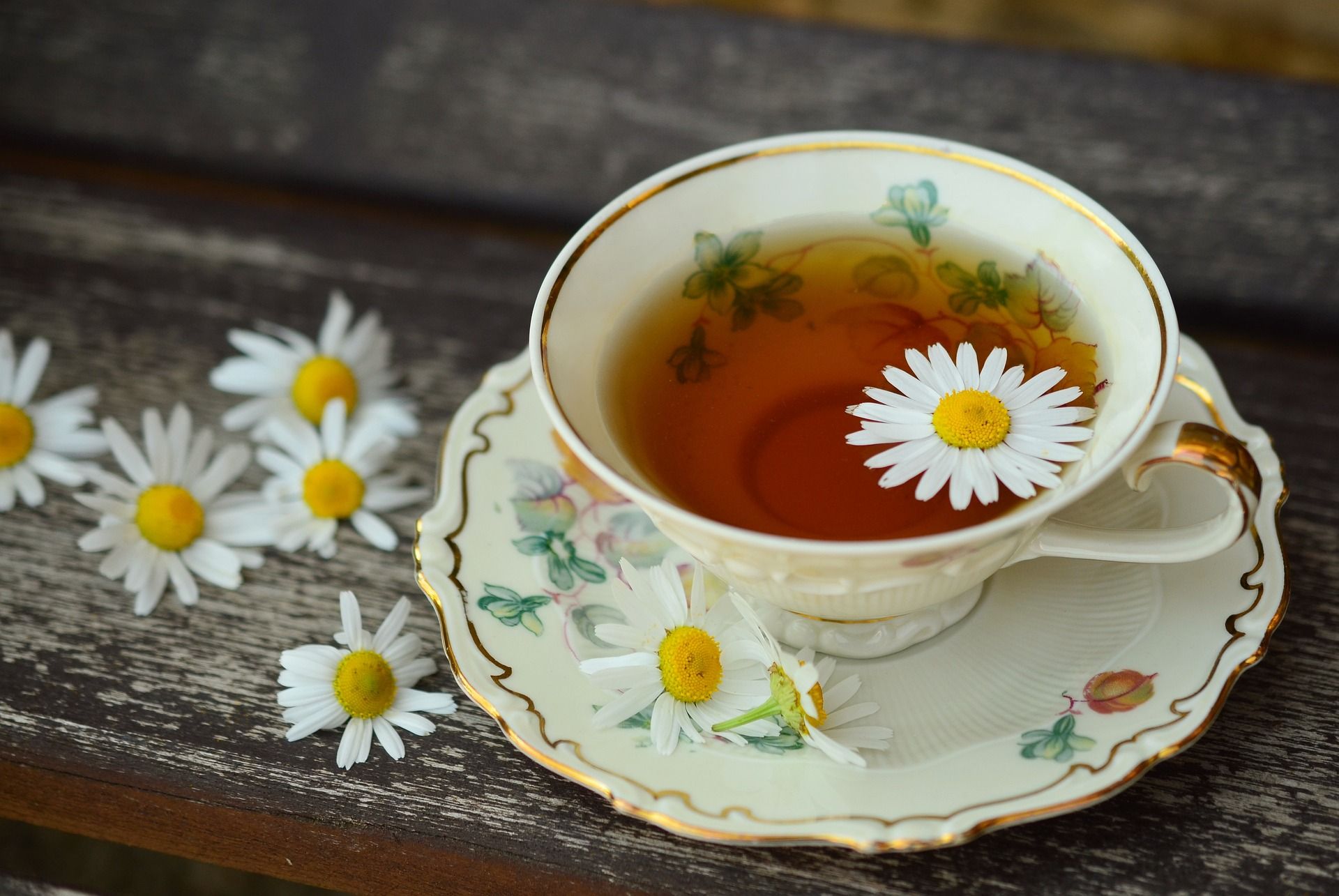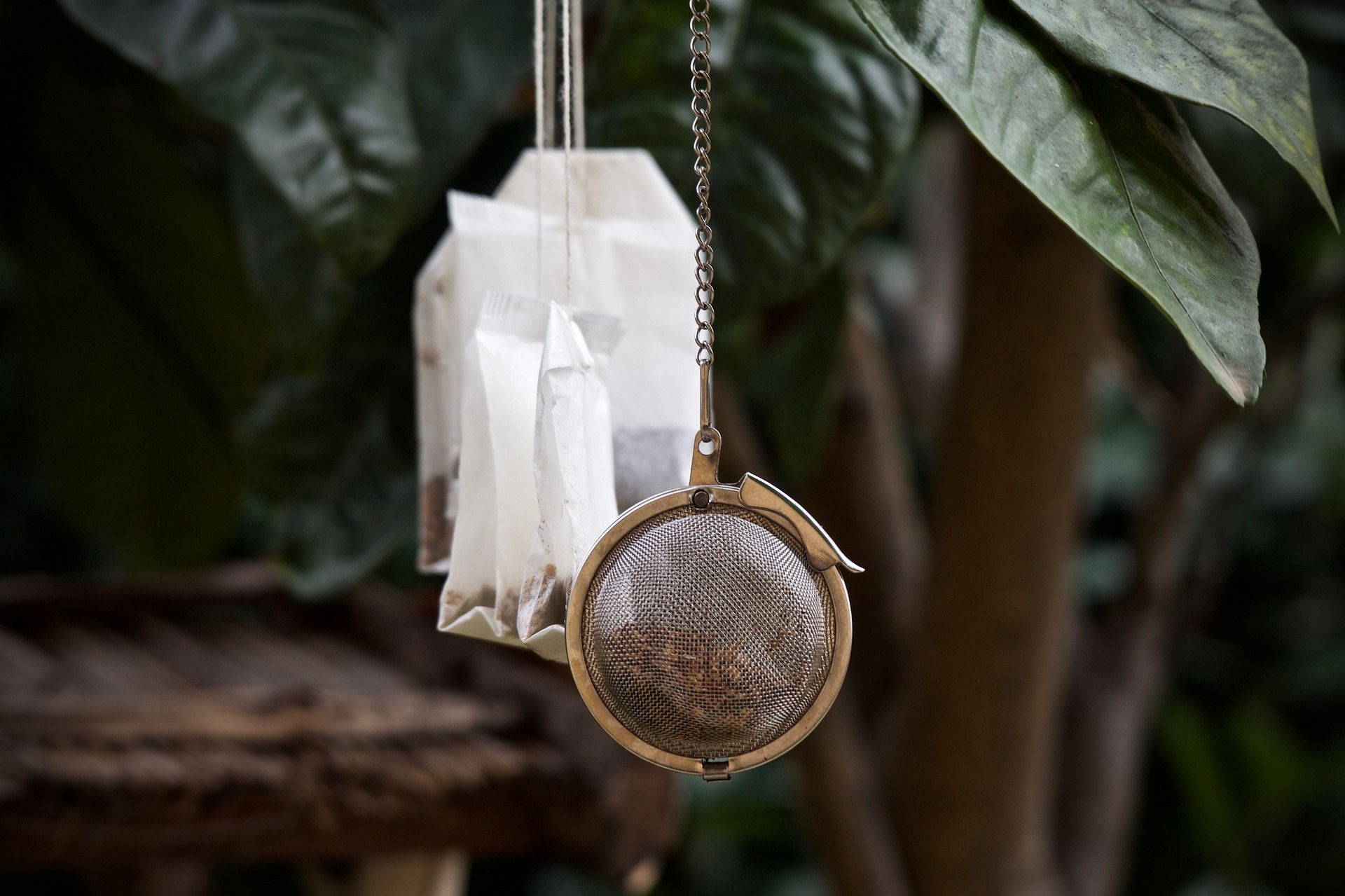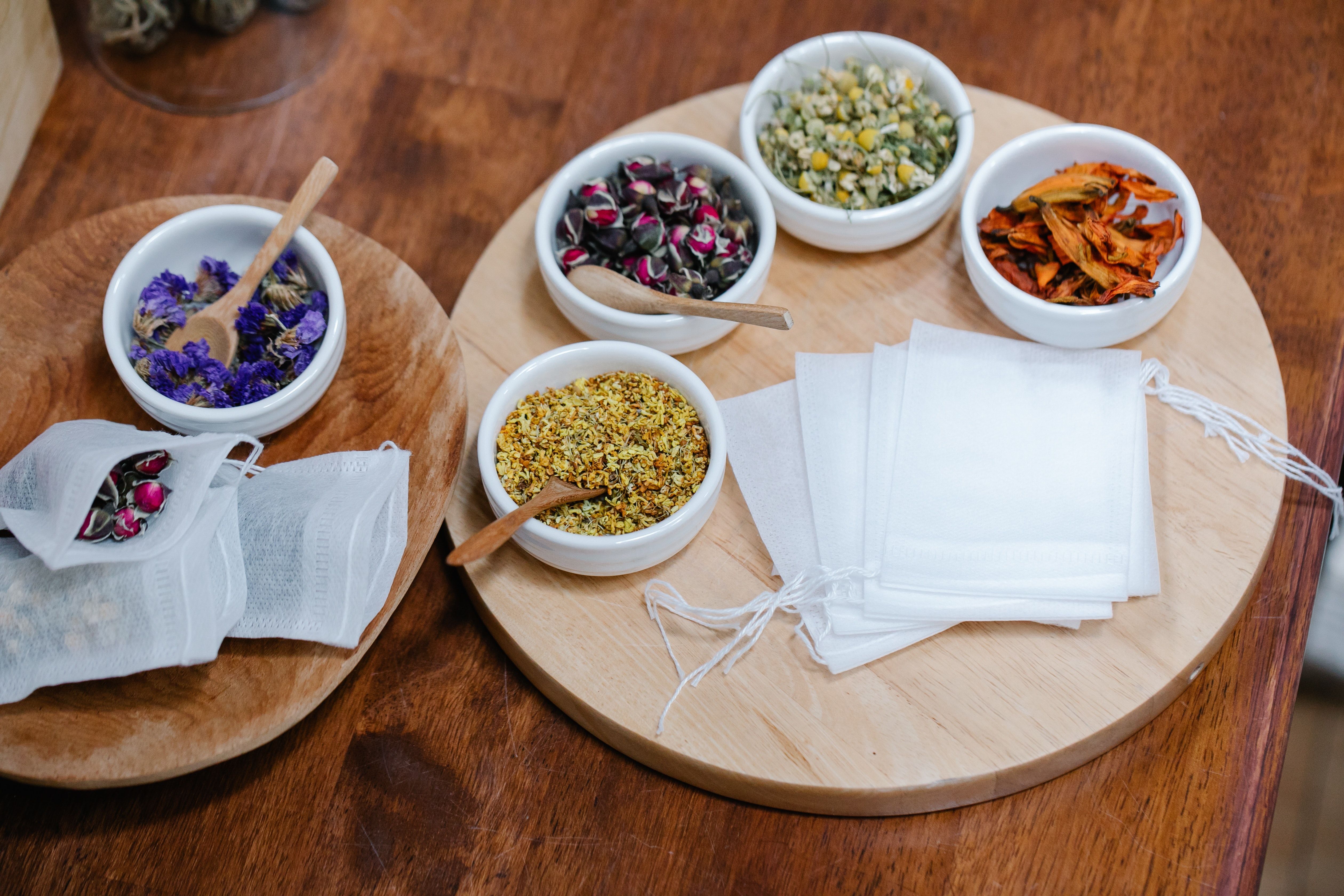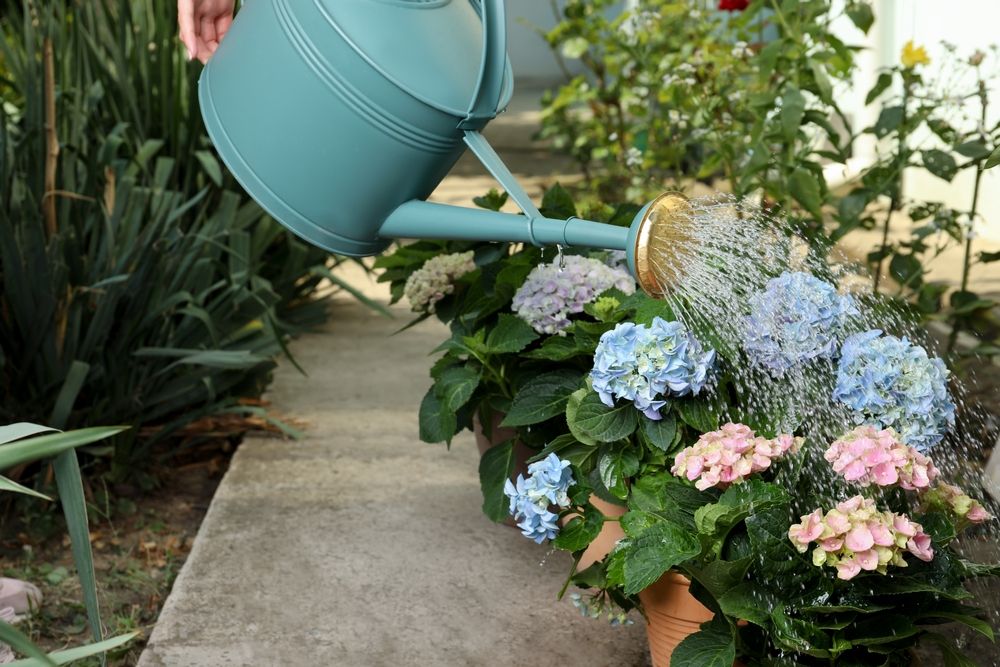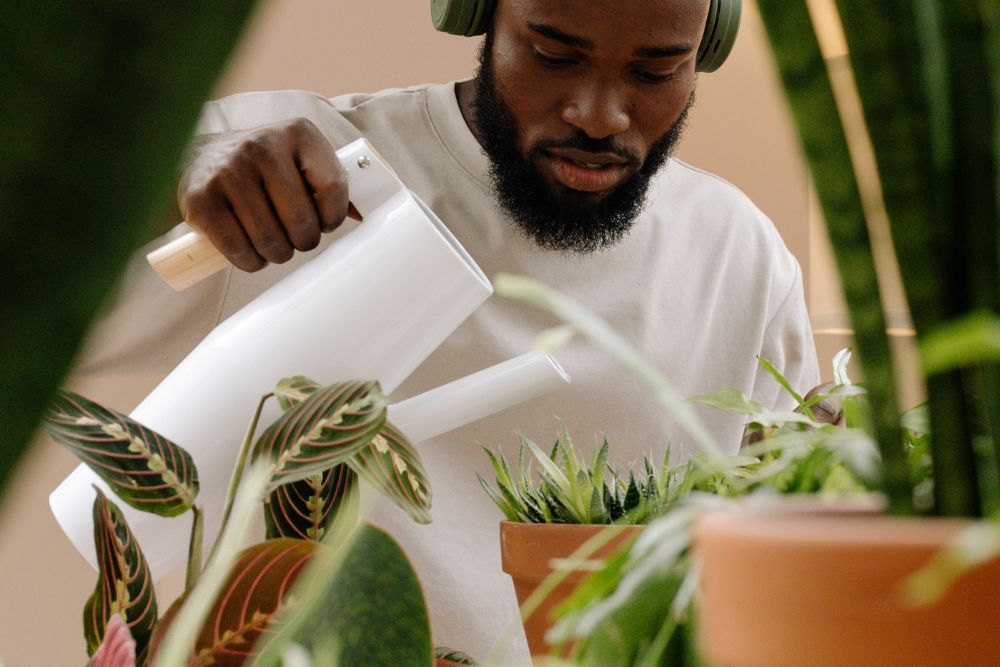Have you heard that you can add coffee grounds to your garden to provide nutrients to the soil and improve moisture retention? Interesting as it is, there's another morning drink you might want to use to keep your plants happy and healthy! Tea offers numerous benefits to your plants, hydrating, nourishing, and more.
Learn below why you should water your plants, indoors and outdoors, with tea instead of plain old water. You'll also discover the types of brew you should use, which plants prefer the drink, and a few tips to properly water your plants.
Can You Water Your Plants With Tea?
Image credits: congerdesign via Pixabay
When brewing your morning cup of tea, feel free to steep an extra cup or two for your plants. The drink is delicious and often caffeinated, but it has also earned a spot in history, known for its soothing benefits. So, it offers similar advantages to your green friends.
While you can water your plants with tea, you should never use it when it's hot. Just like plants can suffer from cold stress if you water with ice cubes, hot water can cause heat stress. It results in wilting, dropping leaves, browning, and loss of blooms.
Hot water can also kill the microorganisms plants need to grow and damage the root system. Instead, allow the tea to cool and pour it into your plants when it reaches a temperature of 62 to 72 degrees Fahrenheit.
Benefits of Watering Plants With Tea
Image credits: sweetlouise via Pixabay
Tea leaves and brewed tea are high in nitrogen! You can mix the leaves into compost or use it as mulch for your plants, but steeping them and using the water is a great way to hydrate your plants.
In general, the nitrogen in the drink creates a more fertile environment for your plants. As such, watering with tea is a good natural alternative to fertilizer. If you add the leaves or grounds to the soil, it will naturally decompose and increase the number of beneficial insects and microorganisms.
What Tea Should You Use?
Image credits: Anna Pou via Pexels
There are many teas on the market, some of which boast different nutrients. Black tea, green tea, and nettle tea are all high in nitrogen, meaning they are a good way to fertilize your plants.
On the other hand, peppermint and citronella ward off pests and insects like mosquitos and fleas. The distinctive smell of yarrow tea attracts pollinators, such as butterflies, hummingbirds, and bumblebees.
Rinse the leaves and flowers to make tea from fresh herbs and plants in your garden. Then, hang or lay them flat to dry for three to four days. Once they are dry, crumble them into smaller pieces and boil them in clean water. Lastly, strain the plant matter out, and voilà, you have tea!
Pro Tip: Look for organic brews to limit pesticides to benefit you and your plants!
What Plants Can You Water With Tea?
Image credits: New Africa via Shutterstock
Tea is generally somewhat acidic, meaning it lowers the pH of your plant's soil. With that in mind, plants that prefer slightly acidic soil should thrive when you water them with the drink. Many plants, such as Boston ferns, tomato plants, beautiful hydrangeas, and tropical philodendrons, prefer a lower soil pH.
Remember to do your research on the needs of your specific plants before watering them with the drink. Also, test your soil with a pH test kit to ensure it isn't already acidic.
Tips for Watering With Tea
Image credits: Cottonbro Studio via Pexels
When watering your plants with tea, don't increase the frequency of watering, and don't water your plant with water and the tea drink. Think of watering with tea as adding fertilizer to your plants: you don't need to use the brew every time you water.
Always consider whether or not your plant needs water and fertilizer before you use tea. How often your plants require watering depends on the temperature outside, the type of soil, the humidity levels, and how moist the soil needs to be to keep each plant happy and healthy. Fertilizing is usually a task for the summer months since that is when most plants are actively growing.
Tea-riffic Watering Tips!
You may be familiar with adding herbs, such as basil or mint plants, to your drinks or making the brew from flowers such as chamomile or lavender. But it might be time to flip the narrative! Watering your plants with tea boasts many benefits, but it is important to choose the right plants and varieties for optimal results. Follow basic watering rules to ensure your plants don't become under or overwatered!
Do you know of any other benefits of watering plants with tea? Share in the comments below!

